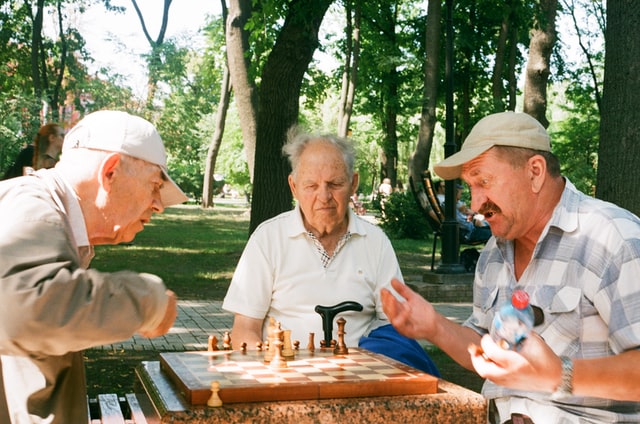New research shows that rapid decision-making doesn’t slow down as we age in adulthood until we’re 60. Instead, we become more cautious — a finding that goes against a commonly held belief.
Imagine you’re driving to work in the morning, singing along to the music playing on the radio. You see that the traffic light at the nearest intersection is about to turn red. You look in the rear-view mirror and there is a car close behind you. How fast can you read the situation and decide whether to brake sharply and risk being rear-ended, or to try to get through the intersection?
It was commonly thought that making these sudden decisions — mental speed — is easier in one’s 20’s than in their 40’s. Psychologists at Heidelberg University examined a dataset containing more than one million Americans to put this idea to the test. The results were published in Nature Human Behavior in February 2022. The outcome was unexpected — you could be taking an extra moment to make a wiser decision in your 40’s.
Participants completed an online implicit bias test which measured how quickly they grouped pictures of people into categories like “good/bad” or “white/black.” Rather than looking at which choice each person selected, the researchers were assessing the speed of the response.
The study, led by Mischa von Krause at the Heidelberg University’s Institute of Psychology, found that while participants’ response times grew longer with age, mental speed did not slow until age 60.
“It looks as though, in the course of our life, we don’t need to fear any substantial losses of mental speed – particularly not in the course of a typical working life,” said von Krause. “The model uses not only response times data, but also the accuracy of the responses.”
In other words, someone who completes a test slowly, but with few mistakes, is very cautious — but they may still have reached the correct answer if they had to complete the test quickly.
Someone who finishes the test fast but gets many answers wrong may also be making the decision quickly, but without caution. Using a computational model of this decision-making process, accuracy was taken into account when determining mental speed.
Rather than slowing over time, this research suggests that we become more cautious in the decision-making process as we age. Another factor is that it takes a little longer for the brain to transmit signals to a participant’s muscles, and this also slows the speed at which they press the button.
While this study involved more than a million participants, it did not measure what happens across disease states. These results are also in line with many smaller studies that only found these deficits emerged after the age of 60.
“It seems plausible that mental speed as measured in our study might decline in Alzheimer’s or dementia patients,” von Krause said, noting that this wasn’t assessed in their study. The methods used in the study advance the use of mathematical modeling for assessing cognitive ability and warrants further investigation.
Next time you find yourself frustrated over how slowly you’re approaching decisions, remember that you’re likely just as sharp as you were ten or 20 years ago — just more cautious.



